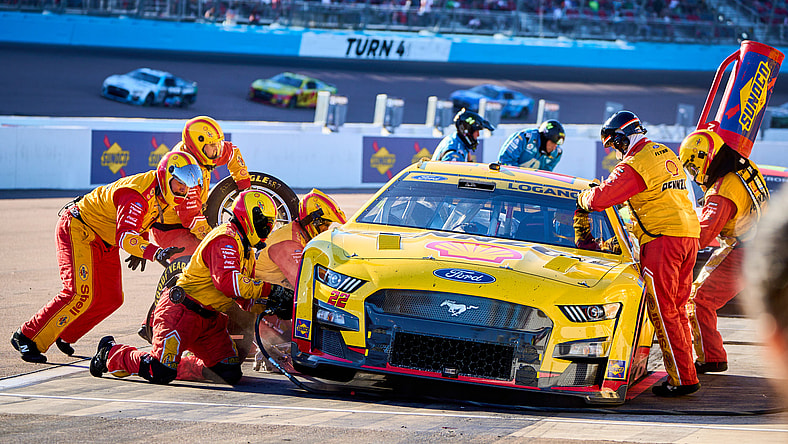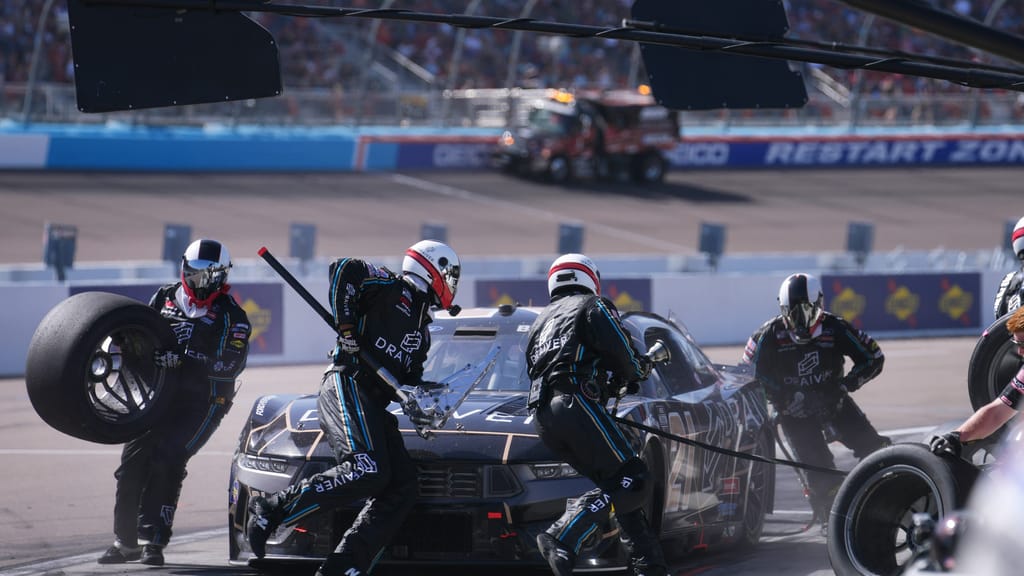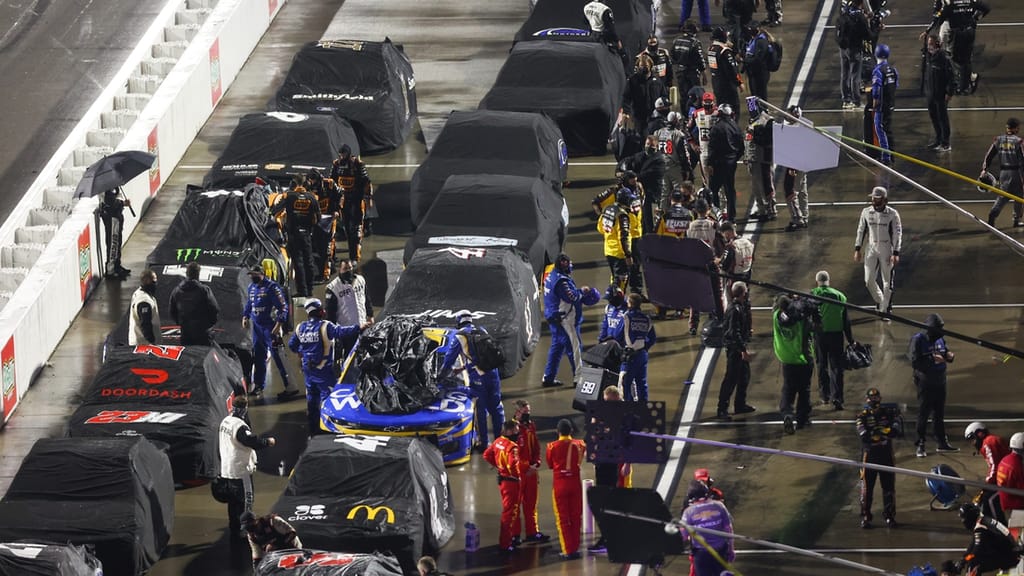
Pit crews in NASCAR and Formula 1 (F1) are essential in their respective forms of racing since the cars cannot race at their peak without the pit crews. Despite the difference between the series, the primary tasks of pit teams are the same: to be fast, precise, and efficient.
How much do NASCAR pit crews make?

What’s the role of NASCAR pit crews?
In NASCAR, pit stops are a bunch of complex interventions, which include changing tires, refueling, and adjusting the car quickly, for example. Team members of the pit crew perform these tasks in unison, taking between 12 to 16 seconds. Here are some important roles:
- Crew Chief: The head of the pit stop team, in charge of planning and coordination.
- Jackman: Lifts the car on the jack so that the tire changers can change the tires.
- Tire Changer: Removes and replaces the tires.
- Tire Carrier: Takes the new tires and brings them to the changer. They also help dispose of the old tires.
- Gasman: Refuels the car during the pit stop.
- Utility Man/Catch Can Man: Supports the gasman and makes sure that any spillage is well contained. They may also clean the windshield or do other small tweaks on the car if needed.
- Spotter: Even though the spotter is not physically present during pit stops, he or she has an important function to perform the driver from a certain vantage position, informing him about the state of the track, other cars, and the time to come in for a pit stop.
- Technologist: This position is to focus on measuring the aerodynamics of the car so that it can deliver its best performance.
- Meteorologist: The team meteorologist observes the weather conditions and how this could affect the race.
Related: 20 richest NASCAR drivers of all time: Where does Dale Earnhardt Jr. land in the top 20?
What’s the salary structure?
Because these workers are essential in the formulation of race strategies and the final results of the races, they’re well paid. NASCAR pit crew members earn an average of $86,421 a year; the pay starts at $40,000 and may go up to $120,000. Nevertheless, it is possible to earn up to $132,876 per year, including bonuses and endorsements for the elite employees. The pay is different for each crew member of the team, and it also depends on the overall success of the team in the particular season.
The payment structure consists of base salary, race earnings, bonuses, and other means of motivation. Teams allocate many resources to their pit crews since quick and effective pit stops are essential to gaining an advantage over competitors. Salaries for the pit crew members have also been on the rise with some of the pit crew getting paid between $150,000 to $200,000 per year.
Besides their salaries, the pit crews also get other forms of remuneration like health insurance, retirement packages, and others. Since pit crew members must be highly skilled, they undergo very intensive training. Physical fitness and coordination are important to ensure that every member is ready to do their job during crucial moments.
Related: Top 10 NASCAR drivers by career earnings
What factors can influence pit crew compensation?
Several factors determine the pay of the NASCAR pit crew members. These include the performance of the team, the number of years the crew member worked, position in the team, and the performance of the individual.
More resourceful teams often employ better-paid crews as the team is usually willing to invest more money in their pit crews. Experience also affects pay. More experienced personnel from the pit crew are better paid than the less experienced ones.
Also, the position within the crew, for instance, the crew chief or the jackman, affects the income because different positions involve different tasks and skills.
Also Read: Top 10 endurance races in motorsports.
How much do F1 pit crews make?

What’s the role of F1 pit crews?
F1 pit crews are more focused on accuracy and quickness since the crew consists of more than 20 people. This is unlike NASCAR which to date still allows refueling during races, the F1 cars ceased doing so in 2010 meaning that once they start a race they have to complete it on a single tank of fuel. F1 pit stops are very fast and take, on average, three seconds or less. Here are some key roles:
- Crew Chief: The leader of the pit crew who directs all the members during the pit stops and overall pit crew operations.
- Tire Gunner: Uses wheel gun to remove and fit the wheel nut.
- Tire Off Crew: Members remove the old tires.
- Tire On Crew: Members who put on the new tires.
- Front Jack: To change the tire, hydraulic jacks are used to lift the car.
- Front Wing Flap Adjust: Changes the angles of the front wing of the car.
- Steadier/Side Jack: Stabilizes the car, which helps to counteract destabilization.
- Lollipop Man: Signal for the car’s release.
Related: Highest paid Formula 1 drivers 2024: Lewis Hamilton, Max Verstappen lead top 10 F1 salaries
What’s the salary structure?
The salary of F1 pit crew members depends on the position they hold in the team and of course, on the team they are working for. Based on thesportsrush.com data from 2023, the Crew Chief gets paid around $10,000 for every race, which amounts to approximately $230,000 per year, plus a $5,000 bonus for winning a race.
Tire Changers earn about $5000 per race, and their income can reach approximately $115,000 per year with a $2500 bonus for every win that they get. Jack Men receive $3,000 for a race and yearly have an estimated salary of $69,000 and a bonus of $500. Side Jacks have a fixed salary of $2,500 per race and about $57,500 per year, with a bonus of $250.
Besides their basic wages, they receive bonuses depending on how fast and efficiently they carry out their pit stop duties.
What factors can influence pit crew compensation?
Several factors affect the payment of F1 pit crew members. Famous teams like Red Bull, Ferrari, and Mercedes spend a lot of money on their pit crews and make sure that they are well-paid as well as properly trained.
Competent and experienced pit stop crews have higher salaries because they are able to provide quick and effective service in the pit stop which is very vital for the team. There are also performance bonuses for the crews when they perform effectively and efficiently.
Also, most of the pit crew members have other duties in their teams, for example, mechanics or engineers, which have an impact on the total remuneration.
Related: 10 best NASCAR drivers of all time